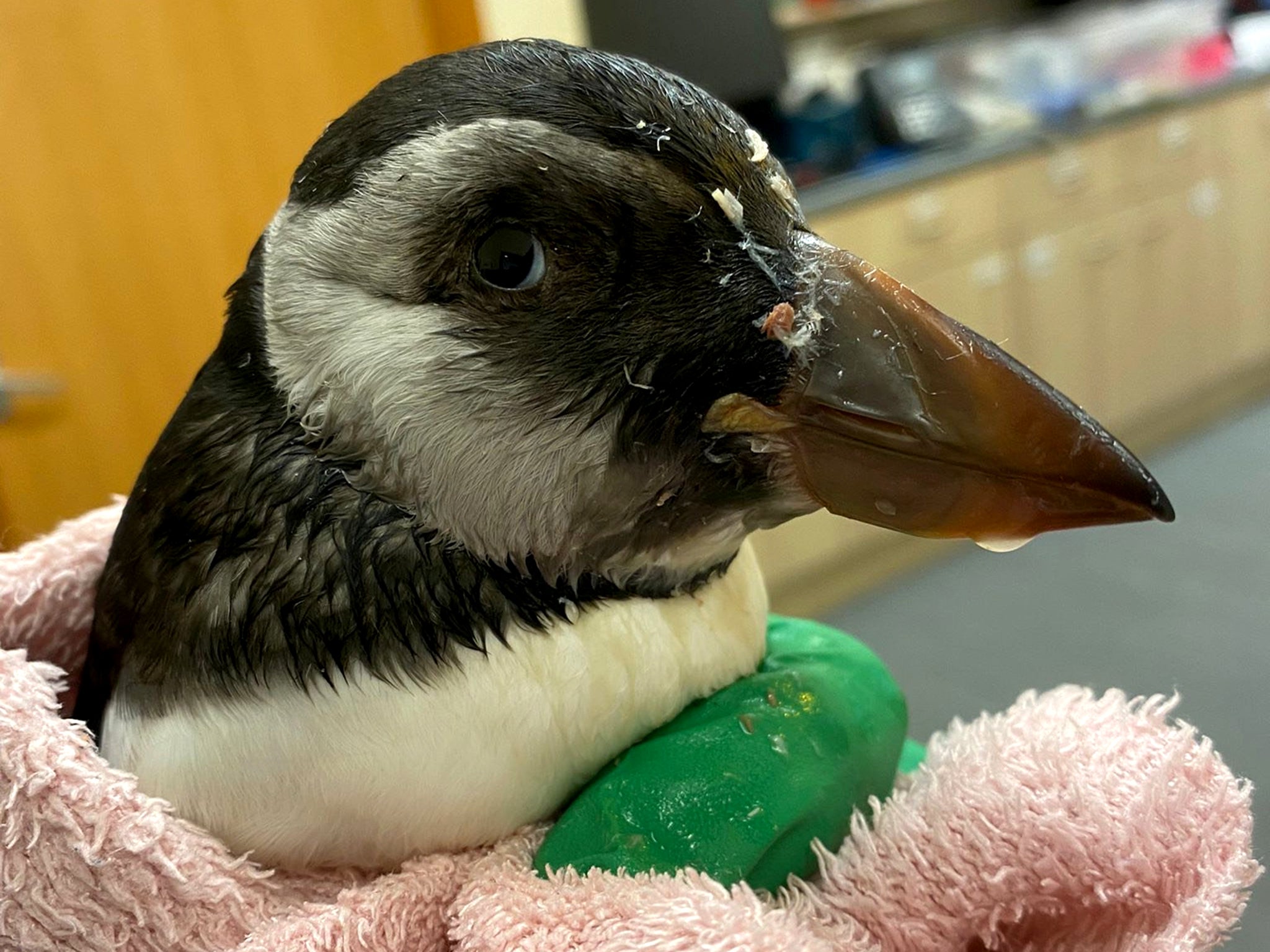More than 100 dead puffins wash up on Scottish shores in worst incident for over 50 years
Deaths come weeks after thousands of guillemots and razorbills were also found dead on British coasts

Your support helps us to tell the story
From reproductive rights to climate change to Big Tech, The Independent is on the ground when the story is developing. Whether it's investigating the financials of Elon Musk's pro-Trump PAC or producing our latest documentary, 'The A Word', which shines a light on the American women fighting for reproductive rights, we know how important it is to parse out the facts from the messaging.
At such a critical moment in US history, we need reporters on the ground. Your donation allows us to keep sending journalists to speak to both sides of the story.
The Independent is trusted by Americans across the entire political spectrum. And unlike many other quality news outlets, we choose not to lock Americans out of our reporting and analysis with paywalls. We believe quality journalism should be available to everyone, paid for by those who can afford it.
Your support makes all the difference.More than a hundred dead puffins have washed up on shores around the northeast coast of Scotland, and the Orkney and Shetland islands over the last three weeks, in an incident experts believe is the most serious in the UK for this time of year in 50 years.
The birds include adults and young, with those who have found the bodies reporting that the birds appear to be emaciated, suggesting that these birds have been unable to find sufficient food while hunting at sea.
There is now concern that this "puffin wreck", as mass deaths are known, will take a significant toll on next year’s breeding numbers.
The cases are being recorded by the UK Centre for Ecology & Hydrology (UKCEH), which carries out long-term monitoring studies to detect the effects of environmental change on UK seabird populations.
Dr Francis Daunt, seabird ecologist at UKCEH, said: “This is one of the most significant puffin wrecks we’ve seen for this time of year since we began studying these fascinating seabirds almost 50 years ago.
"Many of the people who have found the birds say they are emaciated, which suggests there could be a problem within the marine food chain.”
The reports come just weeks after a major report by the British Trust for Ornithology warned that 90 per cent of Britain’s puffins could be wiped out by 2050 due to the worsening climate crisis which is impacting the birds’ food supplies.
It also comes after several thousand guillemots and razorbills were found dead along the east coast of Great Britain in Autumn. It is not yet known if this occurrence is linked.
Vets at Flett and Carmichael, a local practice on Orkney, told the PA news agency that some living birds had been brought into them which were "very weak", with some requiring rehydration fluids to help keep them alive.
Vet Leah Hunter said: "At this time of year the puffins should be far out at sea in groups so the fact that they are being washed up on land means that things have sadly gone wrong for them.
"But we will try to treat them as best we can and try to return them home if they survive the next few days.
"The puffins that have been presented to us have been very weak and cold."
The UKCEH is working with the Marine Scotland directorate of Scottish Government, the Plymouth Marine Laboratory, Edinburgh University, Centre for Environment, Fisheries and Aquaculture, Natural England and DEFRA to investigate these earlier seabird deaths.
Over 100 birds have been tested for avian flu, with all tests coming back negative.
The continued investigation is now focusing on two possible explanations: a significant failure of the marine food supply or toxic poisoning from algal blooms, as well as potentially a combination of both.
Dr Daunt, added: “It is worrying to now see puffins also washing up dead and sick. We hope to be able to carry out post mortems on them as well.”
UKCEH said that "due to the complex and varied nature of the investigation into these rare events, results are not likely to be available until early next year".
They also advised anyone who spots a dead puffin not to touch it, but if they are able to safely take a photograph of it, clearly showing its beak and wings, to send it to UKCEH via enquiries@ceh.ac.uk.
The organisation added: "If you see birds that are alive but sick, please contact the SSPCA or the RSPCA."
Join our commenting forum
Join thought-provoking conversations, follow other Independent readers and see their replies
Comments